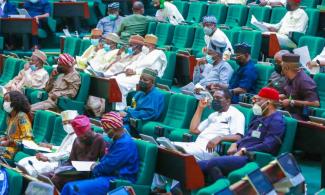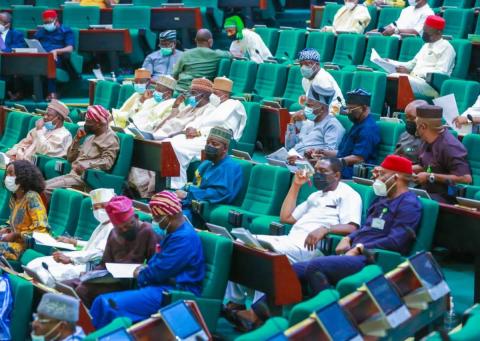
The bill, sponsored by Segun Odebunmi (APC, Oyo), is titled, “An Act to alter Section 308 of the Constitution of the Federal Republic of Nigeria 1999 to extend immunity to cover presiding officers of the legislative institutions.”
A bill seeking to confer “absolute” immunity on presiding officers of the National Assembly and judicial officers has been rejected by House of Representatives Special Committee on Amendment of the 1999 Constitution.
The presiding officers of the National Assembly are; Senate President, Deputy Senate President, the Speaker of the House of Representatives and Deputy Speaker of the House.

The bill, sponsored by Segun Odebunmi (APC, Oyo), is titled, “An Act to alter Section 308 of the Constitution of the Federal Republic of Nigeria 1999 to extend immunity to cover presiding officers of the legislative institutions.”
Abdulhamid Mohammed, a Senior Advocate of Nigeria, who is one of the consultants working with the committee, on Wednesday at the public hearing on the bill presented the position of the consultants to the lawmakers.
"Even though the bill allows citizens to seek leave of the court to sue any of the mentioned public officials, it will create a conflict of interest, particularly as it relates to the judicial officers.
"The bill did not indicate which court has the competence to hear such cases. The immunity is not absolute," he said.
Uzoma Abonta (PDP, Abia), who also spoke against the bill said immunity should only cover issues regarding duties and functions of those public officers, not criminal acts like rape or murder.
Uzoma explained that even though there were examples of abuse of process by the executive against the legislature and judiciary, blank immunity was not acceptable.
"The legislators are already covered by immunity on activities on the floor of the House by virtue of the powers and privileges act," the Deputy Speaker, Ahmed Idris Wase, reacted to the submission by Abonta.
He noted that even though there were instances where some executives have been “reckless” in actions against lawmakers and judicial officers, it was left for the House to decide on the bill.
He, therefore, ruled that the bill should be stepped down.
A similar bill was introduced in the 8th Assembly by the then Minority Leader, Leo Ogor (PDP, Delta). The bill was, however, rejected by the lawmakers then.